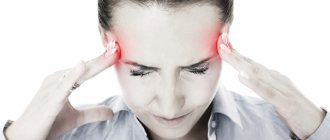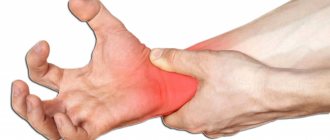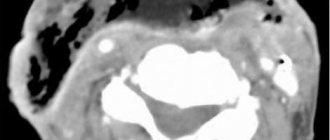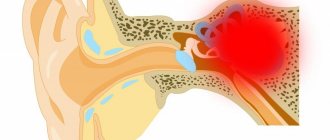Frequent outbursts of anger and excessive aggressiveness are seemingly normal phenomena in everyday life. On the other hand, increased irritability may be a signal of the development of a mental illness. Attacks of anger and tearfulness can occur either out of the blue or due to fatigue or stress. Irritability is a consequence of psychological and physiological problems. In most cases, increased nervousness does not interfere with normal life in society. However, if it interferes with work, career building, or normal family relationships, you should think about visiting a psychotherapist.
Treatment of irritability
The Salvation Clinic provides treatment for irritability using proven techniques and individual programs, as well as modern pharmacotherapy. We have good personnel and technical potential; we can reliably establish the reasons that caused inappropriate behavior. We are recommended for our professionalism and responsibility. Other reasons to contact us for help:
- the possibility of treatment both in a hospital and on an outpatient basis;
- affordable cost of services;
- courteous attitude towards the interests of patients;
- 24-hour psychological support;
- assistance with hospitalization.
Contacting our center is a chance to change your life for the better, to know yourself, to achieve harmonious coexistence with the outside world. With the support of experienced mentors, you can learn to control your behavior and eliminate factors that provoke behavioral disorder.
Treatment of aggression and irritability
Aggression appears as a result of interpersonal conflicts. A negative attitude towards another person can appear at the mere thought that he may wish harm, although in reality this may not be the case. Negative emotions can accumulate. In most cases, it is enough to give a person the opportunity to simply throw out the accumulated negativity. Sports activities are good for this.
There are certain psychotherapeutic techniques that allow you to achieve peace of mind in hot-tempered, irritable people. It is important that a person learns good manners, is able to show resistance to stress in conflict situations, and can calmly react to basic things.
Treatment of increased irritability (senile)
Treatment of aggression in older people should be accompanied by the use of drugs that have a sedative effect. Family psychotherapy, support of loved ones and appropriate care are of no small importance. The staff of our clinic will be able to provide the necessary care around the clock. We take a responsible approach to our work and do everything possible so that our patients do not need anything and are able to appreciate all the benefits of a “dignified” old age.
Treatment of severe irritability
Sleep is the most effective. After a good night's rest, you always feel a surge of strength and energy. During sleep, the body's energy resources are renewed and metabolism is normalized. If you are very irritable, you should stop smoking and drinking alcohol. They only create the illusion of eliminating the attack of anger. It seems to a person that when he smokes, he calms down. In fact, the problem is only getting worse. Smoking causes oxygen starvation of brain cells and other vital organs, which can subsequently cause depression. This is a dangerous mental disorder. In some cases, patients exhibit suicidal tendencies. The patient is deprived of the ability to “see” the world in bright colors and enjoy life. He is constantly negative.
The specialists of our clinic will help you get rid of addiction. Classic treatment methods are used (cognitive psychotherapy, behavioral approach), as well as such radical measures as hypnosis, when the doctor deliberately intrudes into the patient’s consciousness in order to change his behavior patterns and habits.
Adjusting your diet is also important. Food containing various chemical additives (dyes, preservatives) increases irritability. Preference should be given to natural products.
Treatment of severe irritability in women
Strong irritability is more common among representatives of this gender group. Women are more susceptible to self-criticism and strive to achieve perfection in everything; it is important for them to please others. During psychotherapeutic sessions, you can achieve a rethinking of life priorities and direct aspirations in a more useful direction. After eliminating the provoking factor, a significant improvement in the condition will be immediately noticeable.
Treatment of nervousness and irritability
Irritability is mainly treated by a psychologist or psychotherapist using cognitive behavioral techniques. A specialist will first of all identify the cause of nervousness and help you cope with attacks of anger, teach you how to relate to irritants and how to avoid them.
Working on yourself is also of great importance. With the help of a psychologist, you will have to learn to control your emotions and radically change your view of the problem.
Also, most likely, you will need to use medications to normalize your autonomic system, immunity, and relieve stress. Sedatives and vitamins are suitable for this. Establishing a correct daily routine, reflexology, art therapy, and auto-training helps to relieve irritability.
Causes of irritability
Social provoking factors include deliberate incitement, propaganda of violence in the media, incitement of ethnic conflicts, racist calls, encouragement to carry weapons. The external environment can also provoke an attack of anger. A negative reaction occurs to:
- heat,
- cold,
- temperature difference,
- strong wind,
- noise,
- crowded public transport
- stuffiness,
- heavy smoke from cigarette smoke,
- unpleasant smell.
A person may also have a genetic predisposition to aggression. Irritability is provoked by various prejudices passed on from generation to generation.
Antidepressants
Antidepressant drugs are used in courses (usually several months).
They do not have a quick sedative effect, unlike antipsychotics and tranquilizers. However, with long-term use, they can effectively remove attacks of aggressiveness that arise as part of depressive states (endogenous, organic, neurotic).
There are a lot of antidepressants; doctors divide them into several generations and into groups depending on their structure and mechanism of action.
Main antidepressants:
- amitriptyline;
- clomipramine;
- escitalopram;
- paroxetine;
- fluvoxamine;
- agomelatine.
Irritability and aggression in women
Drinking alcoholic beverages can lead to aggressive behavior. More terrible is female alcoholism. The patient loses his mind, can commit any immoral act, sober up and not even remember what happened. Addiction is characterized by complete degradation of personality. Increased irritability in women can also be triggered by a craving for drugs. In this case, all a person’s actions and thoughts come down to searching for the next dose. Fear of withdrawal drives immoral actions. Excessive aggressiveness may be caused by the drug.
What is neurosis and how does it differ from depression?
Differentiation of depression and neuroses is based on diagnostic criteria in the International Classification of Diseases.
We talk about depression when certain criteria are found, such as: depressed mood, loss of interest in things that previously gave pleasure, a significant decrease or increase in appetite, insomnia or increased sleepiness during the day, fatigue, decreased energy, unreasonable feelings guilt, feelings of worthlessness, decreased concentration. It should also be remembered that such symptoms can occur as a reaction to strong experiences in life, for example, the death of a loved one, and also accompany other diseases. Accurate diagnosis is important.
In neuroses, the dominant symptom is fear, which is a characteristic symptom of neurotic disorders. Added to this are symptoms characteristic of depression.
Causes of increased irritability
Increased irritability can occur for a variety of reasons. Most often this is due to improper planning of your own time. Thus, with monotonous and monotonous work, the inability to properly rest or allocate time for this can lead to regular rush jobs, and, accordingly, chronic fatigue and increased irritability.
A person who is in such conditions increasingly experiences anxiety, weakness and sudden mood swings. He can be lethargic and apathetic, and the next moment he can be irritated over some little thing. His health worsens, he feels hot and cold. Sometimes the cause of increased irritability can be an unstable psyche. They get irritated even when a small difficulty arises. If the trouble is more serious, then they simply lose their temper.
Nervousness and irritability in men
Nervousness and irritability
in men it is “cumulative” in nature and, unfortunately, the “discharge” of emotions happens in the family, even if the problem is not related to the family. Often irritability in men appears due to everyday pressure or problems at work. In such cases, it is necessary for the person to realize the problem himself; he must be left alone, since even logical arguments will not help in a state of severe irritation.
If a man’s irritability and nervousness interferes with his activities or relationships with his family, it is recommended to consult a psychologist to find out the cause of the breakdown.
Causes of severe irritability
Severe irritability can occur for the following reasons:
- Increased activity of the thyroid gland. It causes increased production of a hormone that affects many body functions, including brain function.
- High concentration of cholesterol. More precisely, it is not the cholesterol itself that is to blame, but the drugs taken to reduce its level.
- Diabetes. Low sugar levels lead to metabolic imbalance and frequent outbursts of anger.
- Depression. Constantly being in a bad mood cannot but affect the reaction to certain events.
- Suffered a stroke. This phenomenon is not unique, because a stroke leads to the death of brain cells. If the frontal lobe, which is responsible for controlling emotions, is damaged, then a person can very easily lose control in almost any situation.
Contact us, don’t be left alone with the problem, we will help you understand yourself and improve your life!
Mood swings, tearfulness and irritability: why they occur
Before discussing why nervousness and irritability arise, let’s define what irritability is in general and what we will call nervousness.
Irritability is the tendency to respond to normal stimuli with an excessive reaction of anger or aggression. As a rule, irritability manifests itself in conversation with a loud, shrill voice, rapid eye movements, and repetitive movements: walking around the room, tapping fingers, shaking legs, etc.
Nervousness is a state of internal anxiety, restlessness, and a person cannot name a specific object about which he is experiencing anxiety. Nervousness is often accompanied by a premonition of impending misfortune: “restless in the heart.”
Irritability and nervousness, even among those who are quick-tempered or anxious due to their character traits, never arise without a reason.
The reason for this condition may lie in:
- Depressive disorder;
- Anxiety disorder;
- Nervous exhaustion (neurasthenia, neurosis);
- Post-traumatic stress disorder;
- Chronic fatigue syndrome;
- Drug addiction or alcoholism;
- Lack of self-realization or self-expression.
Increased excitability of the nervous system is sometimes provoked by emotional stress, physical fatigue, lack of sleep, violation of the work and rest schedule, and lack of insolation (stay in the sun).
Irritability can also be caused by somatic diseases, for example, thyrotoxicosis, diseases of the nervous system (Alzheimer’s disease, etc.), injuries and diseases of the brain. Both female and male menopause, during which the production of sex hormones decreases, are also often marked by its appearance.
Irritability and tearfulness can occur during pregnancy, with hormonal changes associated with the menstrual cycle. A lack of vitamins in the diet can lead to increased irritability and tearfulness not only in adults, but also in children.
There is also situational irritability, for example, when a person is distracted from an important task that requires increased concentration, or when he is simply hungry. We also react to sudden pain with aggression.
Nootropics and neurometabolic agents
This is a wide group of drugs that have a “general strengthening” effect, improve the metabolism of nerve cells, and have a positive effect on cognitive functions (memory, attention, learning).
Used in courses, has fewer contraindications (compared to previous groups of funds). Effective for aggressiveness caused by overwork, the consequences of organic damage to the central nervous system, neuroses and personality disorders.
The main representatives of this group:
- glycine;
- nootropil;
- aminophenylbutyric acid;
- Vinpocetine.
All medications have indications and contraindications. Be sure to consult your doctor. Remember, medications must be prescribed by a doctor!










